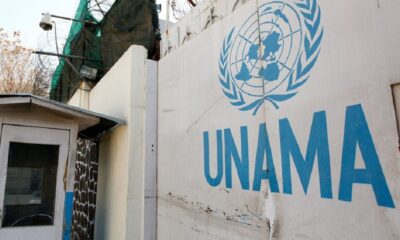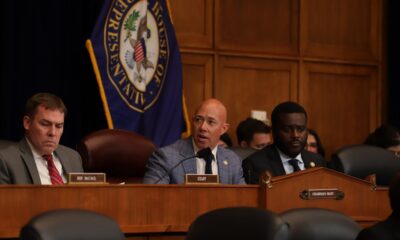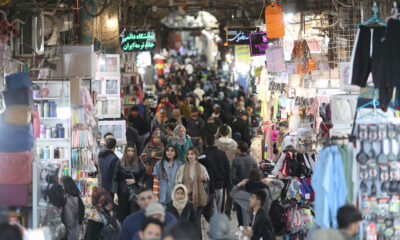Latest News
Some countries preventing Afghanistan from gaining its seat at UN: Mujahid

The Islamic Emirate’s spokesperson Zabihullah Mujahid says some Western countries, including the US, are preventing Afghanistan from gaining its seat at the United Nations.
Mujahid added that the US and its allies hold significant influence over the policies of the UN, and due to their defeat in the Afghanistan war, they are attempting to continue wartime policies.
“Some countries that fought against the Afghans for twenty years still have not changed their wartime policies and continue along the same path, which naturally has its effects,” said Mujahid.
He emphasized that the Afghan people have the right to secure this seat, and the IEA will continue to work to obtain it.
He also rejected the notion of Afghanistan being isolated, stating that despite Western pressures, the acting government has expanded its diplomatic relations with regional and global countries.
He stated: “Afghanistan is not isolated; every country naturally faces some challenges with others, but we have extensive regional and international engagements.”
However, experts believe that the UN will not grant Afghanistan’s seat to the IEA until they take concrete steps to meet the international community’s preconditions, such as establishing an inclusive government, ensuring human rights—especially women’s and minority rights—and effectively combating terrorism and narcotics, to satisfy the world.
Despite over three and a half years since the IEA’s takeover, no country has officially recognized the regime.
Meanwhile, many countries have engaged with the IEA and established good diplomatic relations with the caretaker government, which the IEA believes serves as a form of recognition of Afghanistan’s current government.
Latest News
IEA focused on implementing ‘pure Islamic system’ nationwide, UNAMA says
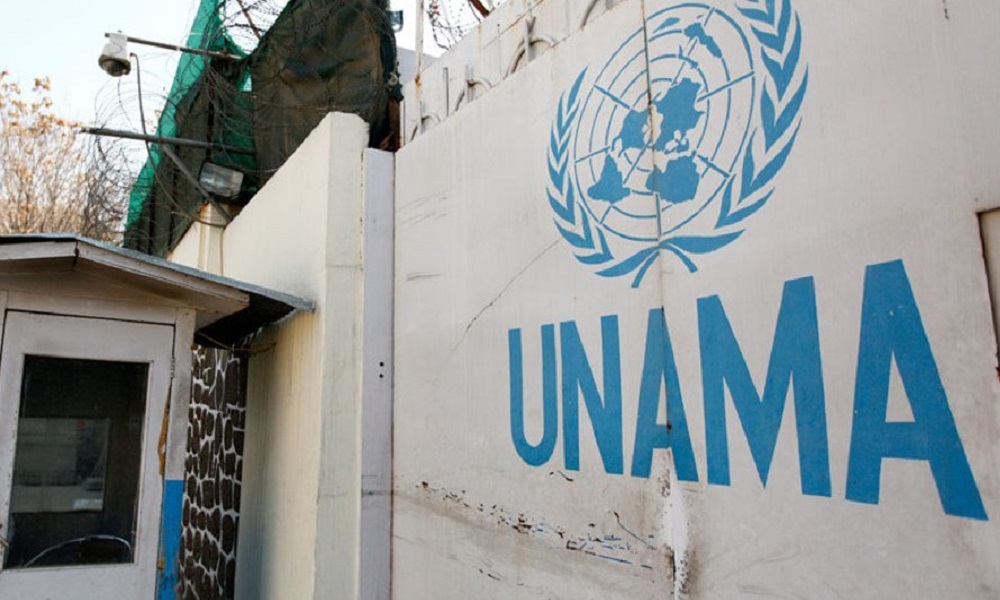
The UN in Afghanistan (UNAMA) on Thursday released a report on the impact, implementation and enforcement of the Islamic Emirate of Afghanistan’s (IEA) law on the propagation of virtue and prevention of vice (PVPV law) and found there to be a determination by IEA authorities to ensure their vision of a pure Islamic system is implemented nationwide.
The report covers the six-month period since the law’s promulgation in August last year. UNAMA stated it had “observed overall more systematic and consistent efforts in the de facto authorities’ enforcement of the PVPV law led by the de facto Ministry of the Propagation of Virtue and Prevention of Vice and Hearing of Complaints compared to the de facto authorities’ enforcement of earlier decrees.”
UNAMA noted that these efforts include the establishment of implementation committees in 28 of Afghanistan’s 34 provinces, and the deployment of about 3,300 PVPV inspectors with broad discretionary powers.
According to the report, UNAMA also observed far-reaching socio-economic impacts on Afghan men and women, “including increased restrictions on Afghans’ personal and private spaces and on women and girls’ access to public spaces and healthcare, dress code, and travel.
The report stated that the direct and indirect socio-economic effects of the law’s implementation are likely to compound Afghanistan’s dire economic and humanitarian situation, including on the ability of UN agencies and international NGOs to deliver humanitarian and basic human needs assistance to millions of people across Afghanistan.
In response to this report, however, the Ministry for Promoting Virtue and Preventing Vice has stated that it has helped thousands of women to secure their rights and has saved them from forced marriages in all provinces.
The ministry added that it has prevented abuses to eliminate undesirable customs and traditions in the country.
According to the ministry, a number of unknown groups, to achieve their malicious goals, have ignored all these achievements and seek to confuse public opinion.
This comes after the UN Security Council stated in a resolution on Afghanistan in December last year that it was seriously concerned “about the increasing erosion of respect for human rights and fundamental freedoms, in particular for women and girls and their lack of equal access to education, employment, justice, economic opportunities, full, equal and meaningful participation in public life, freedom of movement, and enjoyment of basic services – the absence of which make peace, stability, and prosperity in the country unattainable.”
The UNSC reiterated “its call for the Taliban (IEA) to swiftly reverse these policies and practices, including the “vice and virtue” directive”.
Latest News
Donor community meet in Turkey to ‘plan and coordinate’ aid to Afghanistan
In 2024, humanitarian and basic human needs partners raised a collective US$3.21 billion in support of the Afghan people, exceeding funding levels of the previous year.

The Turkish Embassy in Kabul has confirmed that a two-day Afghanistan Coordination Group (ACG) Meeting is being held in Istanbul where the international donor community will look at priorities and plans around the situation in Afghanistan.
In a post on X, the embassy said the meeting would be held on Wednesday and Thursday and that it was important for the donor community to coordinate activities.
This comes just two days after the United Nations in Afghanistan (UNAMA) called on the international donor community to maintain critical support for the Afghan people, 22.9 million of whom are in need of assistance in 2025.
“If we want to help the Afghan people escape the vicious cycle of poverty and suffering, we must continue to have the means to address urgent needs while simultaneously laying the groundwork for long-term resilience and stability,” said Indrika Ratwatte, the UN’s Resident and Humanitarian Coordinator and Deputy Special Representative of the Secretary-General in Afghanistan.
“Despite complex challenges in delivering assistance to the Afghan people, we must continue to make the gradual transition from life-saving assistance to sustainable solutions that address the root causes of vulnerability. This is critical for Afghanistan, the region, and the world.”
In 2024, humanitarian and basic human needs partners raised a collective US$3.21 billion in support of the Afghan people, exceeding funding levels of the previous year.
Latest News
US House panel approves bill to prevent aid falling into IEA’s hands
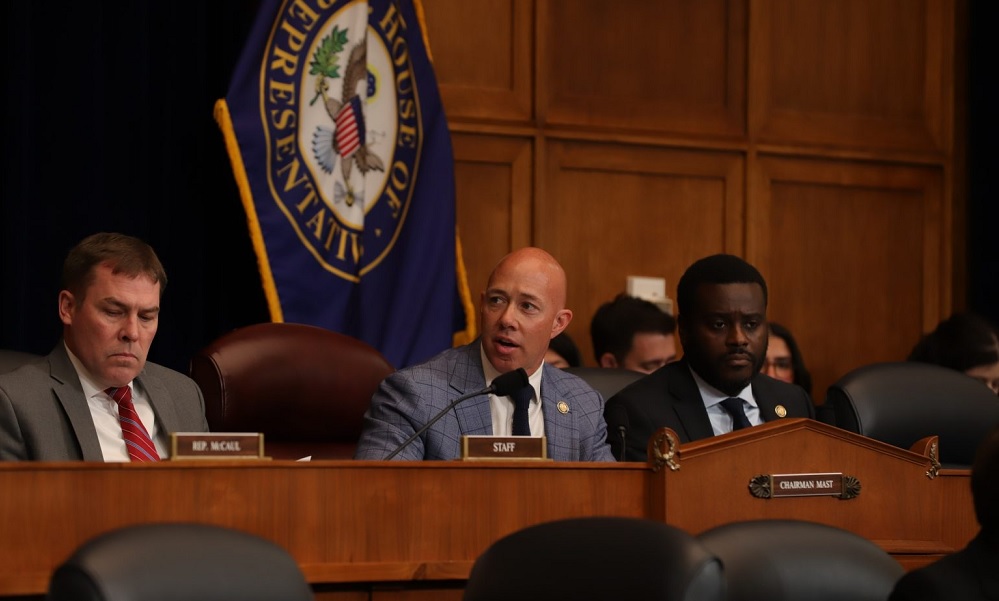
The US House Foreign Affairs Committee voted on Wednesday in favor of a bill to prevent American aid falling into the hands of the Islamic Emirate of Afghanistan (IEA).
This issue has been a key focus for House Republicans since last Congress when lawmakers were made aware that weekly cash shipments of $40 million were being sent to Afghanistan’s IEA-controlled central bank.
Additionally, the Special Inspector General for Afghanistan Reconstruction reported in May 2024 that more than $10 million had been paid to the IEA in the form of taxes since they regained power in Afghanistan in August 2021.
“The United States has sent over $5 billion in cash to Kabul,” said Rep. Tim Burchett who sponsored the bill. “This money has been taxed and stolen by the Taliban (IEA), yet we continue to send it oddly enough. That definitely needs to end. The State Department needs to ensure that that any aid, whether financial or material, does not go to terrorists in Afghanistan. We need to have a clear understanding of the influence the Taliban has on, not just international aid, but the Afghan banking system as well.”
House Foreign Affairs Committee Chairman Brian Mast said: “This bill requires the Department of State to develop and implement a strategy to discourage foreign countries and non-government organizations, NGOs, from providing financial and material support to the Taliban (IEA). That’s important for the United States of America. We don’t have an embassy there. We don’t have diplomatic relations with the Taliban (IEA) – they are a terrorist organization.”
He added: “This includes by using U.S.-provided foreign assistance to discourage countries and organizations from providing support to the Taliban (IEA). We don’t want American tax dollars, in any way, shape or form, going to the Taliban (IEA).”
The bill, which has 23 co-sponsors, advanced to the House floor.
The Islamic Emirate has previously rejected claims of interference in international assistance to Afghanistan.
-
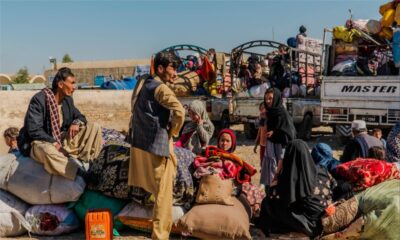
 Latest News4 days ago
Latest News4 days agoUN rights experts call on Pakistan to stop removal process of Afghan refugees
-
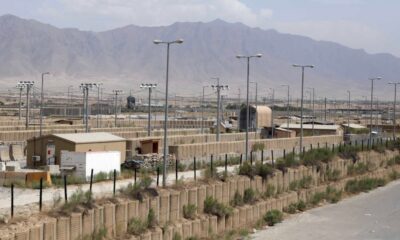
 Latest News3 days ago
Latest News3 days agoIEA rejects reports of US military planes landing at Afghanistan’s Bagram Air Base
-

 Science & Technology4 days ago
Science & Technology4 days agoMeta releases new AI model Llama 4
-

 Sport4 days ago
Sport4 days agoAfghanistan Under-19s beat Nepal by 1 run in second ODI, win series
-

 World4 days ago
World4 days agoAnti-Trump protesters gather in Washington, other US cities
-

 Regional4 days ago
Regional4 days agoRains add to challenge for Myanmar quake relief, toll at 3,471
-
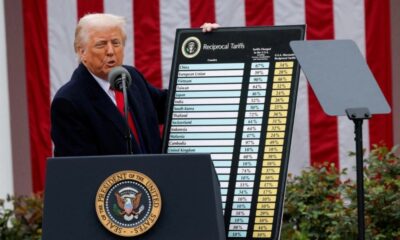
 Latest News3 days ago
Latest News3 days agoTrump’s tariff pressure on Afghanistan ‘will impact economic growth’
-
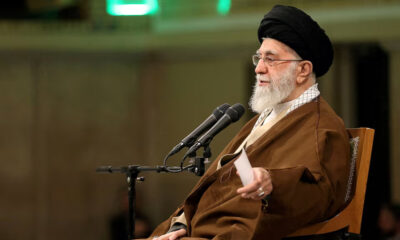
 Regional4 days ago
Regional4 days agoIran wants indirect talks with US, warns regional countries over strikes against it




